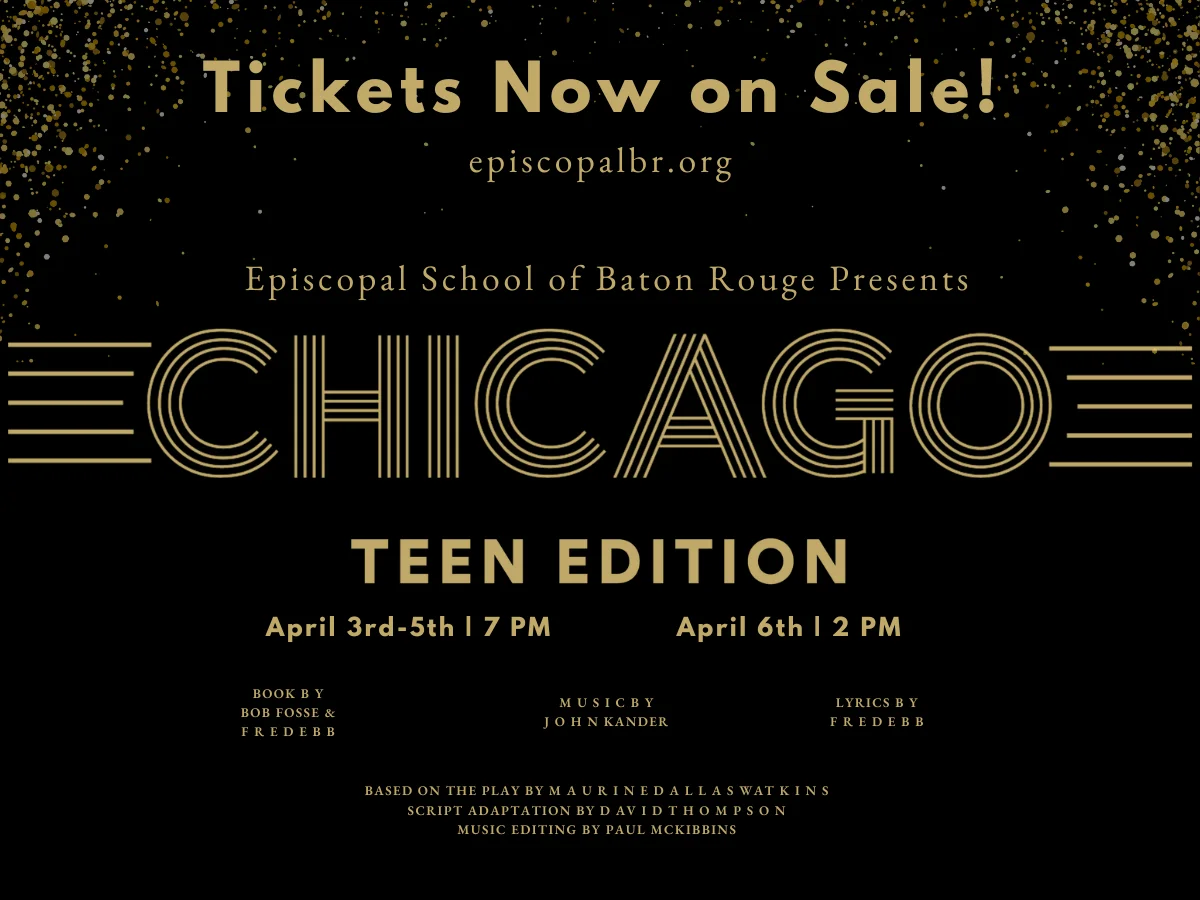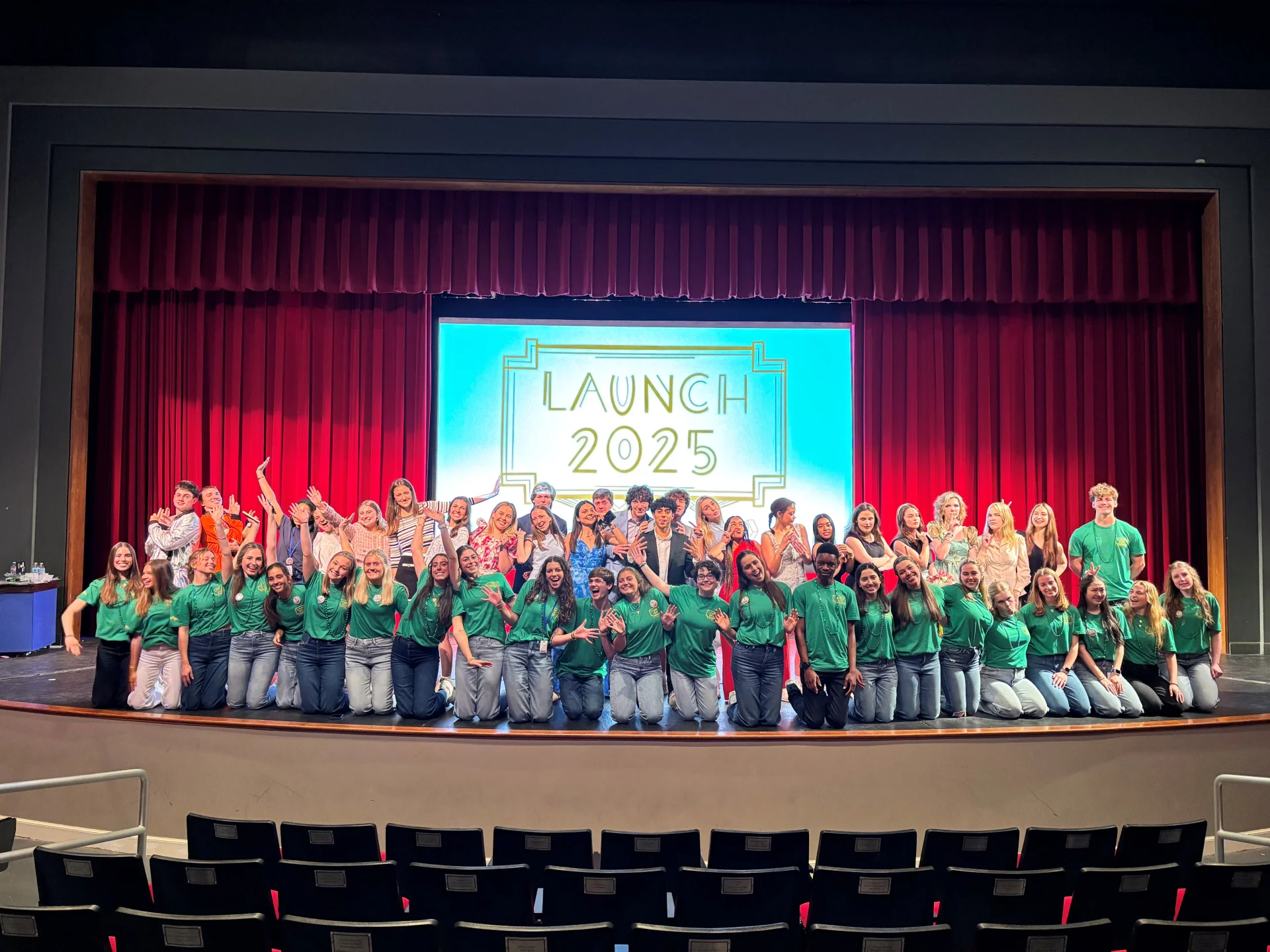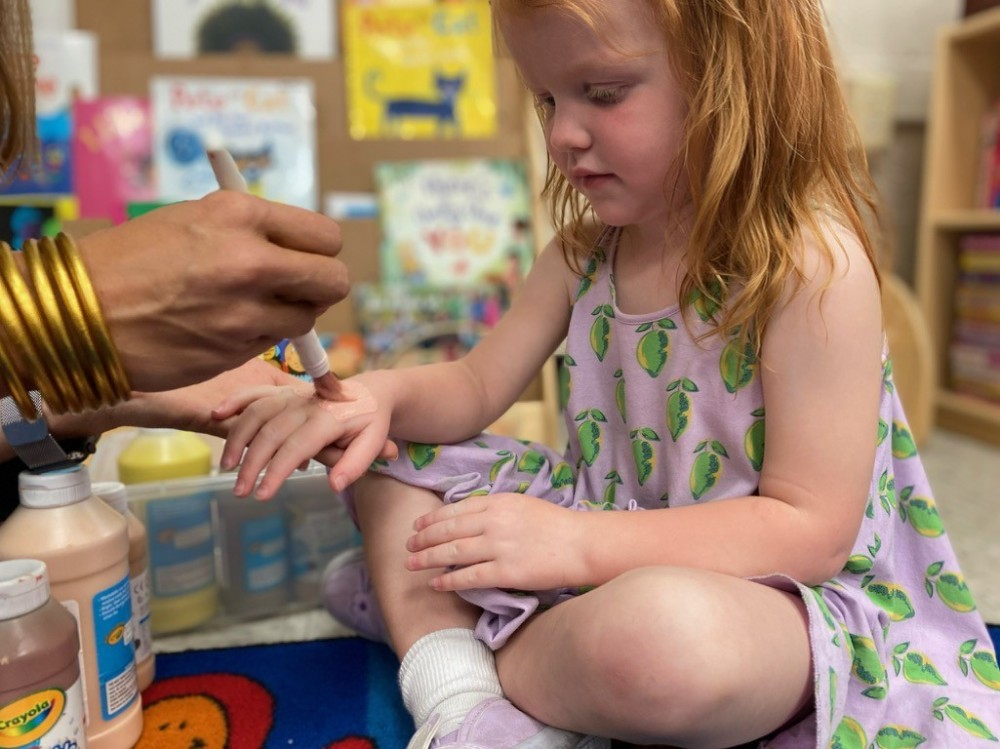- Admission
- Discover Episcopal
- Our Program
- Athletics
- Arts
- Spirituality
- Student Life
- Support Episcopal
- Alumni
- Parent Support
- Knightly News
- Contact Us
- Calendar
- School Store
- Lunch Menu
- Summer Camps
- Knight Under the Stars
- Chicago Tickets
- PowerSchool Notice
« Back
Let Them Be Little
September 26th, 2022

The block center has always been a childhood favorite. Children can spend hours constructing intricate designs and seeing how high they can stack different shapes, choosing just the right pieces to balance their teetering tower before it comes tumbling down. Educators place great value in the lessons children are learning through block play. They are counting, comparing, adding, subtracting, balancing, and using geometry language. They develop cognitive skills (planning and problem solving), fine motor skills (stacking), language skills (conferring with classmates), and social skills (sharing). To a child– it’s all just simply play.
Early childhood families gathered virtually this week for a parent coffee centered around the book, “The Importance of Being Little.” The author, Erika Christrakis, issues an appeal for educators and parents to put down the worksheets and flashcards and double-down on PLAY! Christakis contends that in order to help kids learn most efficiently, we need to realize the importance of trust and play in teaching. She even goes as far as saying that when we deny children the opportunity to play, we are denying them the right to understand the world.
Play is just as needed to a child as food, health, and sleep.
During play, children must plan, negotiate, problem solve, and design. Play requires imagination, negotiation, collaboration, and empathy. Studies indicate that it takes about 400 repetitions to create a synapse in the brain, unless it’s done through play, in which case it takes only 10-20 repetitions. Play is absolutely critical for early childhood development. Children need to have a chance to play, to make friends, to learn limits, to share, and to practice taking turns.
Play fosters a growth mindset.
Play creates a safe environment for children to take risks, make mistakes, make adjustments and try again. A child who knocks over a teetering tower is eager to build it again. Children celebrate when they finally master the monkey bars after months of practice. When a puzzle piece doesn’t fit, they try another spot. Play encourages children to keep trying hard things.
We need to be comfortable with allowing kids to get bored.
Boredom can be a friend to the imagination. Sometimes when kids appear to be bored, they actually haven't had enough time to engage in something. We often move them along to the next thing. We need to resist the urge to keep kids entertained. Allow them the time to explore without offering a new and shiny alternative. Consider asking, “How can I help the child to look at this in a new way? To try something new, to be patient?”
.jpg?v=1664544474364)
.jpg?v=1664544495700)
.jpg?v=1664544778593)
.jpg?v=1664544788877)
Play gives kids a chance to practice what they are learning.
Play is the center of the early childhood curriculum at Episcopal. Our unique campus gives us many opportunities and spaces for children to play. The QUEST Center, outdoor classrooms and gardens, the Frazer playground and Coach Dupe Nature Trail all provide the backdrop for purposeful play throughout the day.
Never do for a child what they can do for themself.
American psychiatrist and educator Rudof Dreikers writes, “Children become irresponsible only when we fail to give them opportunities to take on responsibility.” It is often easier and faster to open your child’s milk, get them dressed in the morning and pick up after playtime. Kids make big messes and it is often hard for us, as adults, to give them control. But they are absolutely capable, and the important skills that they are building are critical for their development. Consider some ways that you can incorporate your children into your household routines.
For more ideas of how to equip your child for the transition to school, check out our past article, Is My Child Ready for Preschool?
Are you ready to explore Episcopal?
Early childhood playdates give parents and prospective students the opportunity to experience a glimpse of what a typical day in the early childhood classroom looks like. Children entering grades PreK-3 through kindergarten are invited to the QUEST Center for a morning full of activities, including storytime, music and movement, sensory play, art and more. For more information and to register for our future playdates, contact Andrea Vidrine at [email protected].

Julie Mendes, a 2001 graduate of Episcopal, moved into the role of Director of Early Childhood Programs in 2020 after teaching PreK-4 since 2012. She received both her undergraduate degree and MEd in elementary education at Texas Christian University in Fort Worth, Texas. After teaching second grade in a Dual Language program in Texas public schools for three years, Julie moved abroad to teach first grade at a bilingual school in Gracias, Lempira Honduras. In her role as Director of Early Childhood Programs, Julie provides leadership and support for early childhood students and teachers.
The Episcopal School of Baton Rouge 2025-2026 application is now available! For more information on the application process, to schedule a tour, or learn more about the private school, contact us at [email protected] or 225-755-2685.
Posted in the categories All, Lower School.
Other articles to consider
 Mar27Episcopal Presents "Chicago: Teen Edition"
Mar27Episcopal Presents "Chicago: Teen Edition"Don’t miss the Upper School spring musical “Chicago: Teen Edition”! With dancing, singing, a true crime theme and a 12-piece professional orchestra, this PG-13 presentation is sure to impress. Shows run April 3-6—get your tickets today!
See Details Mar27Episcopal Announces "The Knight of Excellence" Athletic Banquet
Mar27Episcopal Announces "The Knight of Excellence" Athletic BanquetCelebrate Episcopal's top athletes at the Knight of Excellence on April 27th! Join us for an inspiring evening of awards, recognition and community.
See Details Mar26College Announcements 3.28.25
Mar26College Announcements 3.28.25Please join us in congratulating members of the Class of 2025 as they announce their college enrollment decisions.
See Details Mar25A Community of Learners Takes the Stage at LAUNCH Day 2025
Mar25A Community of Learners Takes the Stage at LAUNCH Day 2025LAUNCH Day 2025 celebrated student-driven research, innovation and a close-knit community of learners. See how seniors showcased their hard work, creativity and big ideas on stage.
See Details
Categories
- All
- Admission
- Athletics
- College Bound 2019
- College Bound 2020
- College Bound 2021
- College Bound 2022
- College Bound 2023
- College Bound 2024
- College Bound 2025
- Counselors Corner
- Episcopal Alumni
- Giving
- Head Of School
- Lower School
- Middle School
- Spirituality And Service
- Student Work
- The Teachers' Lounge
- Upper School
- Visual And Performing Arts
Recent Articles
- 03/27/25Episcopal Presents "Chicago: Teen Edition"
- 03/27/25Episcopal Announces "The Knight of Excellence" Athletic Banquet
- 03/26/25College Announcements 3.28.25
- 03/25/25A Community of Learners Takes the Stage at LAUNCH Day 2025
- 03/24/25Congratulations to the 2025 Newton Distinguished Faculty Award Honorees!
- 03/21/25College Announcements 3.21.25
- 03/21/25Chase Cresson to Play Football at Morehead State University
- 03/20/25Anna Kate Yale to Compete at Harding University
- 03/13/25From Museums to READBowl: Episcopal Students Embrace the Joy of Learning
- 03/13/25Expanding Academic Support: ARC Fellows Mentor Lower School Students











